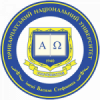Theoretical Principles of Motivation Management in the Territorial Community
DOI:
https://doi.org/10.15330/jpnu.10.2.24-32Keywords:
motivation, motive, motivational management, stimulation, incentive, territorial community, public administrationAbstract
The importance of employee motivation in a territorial community lies in its impact on their productivity, efficiency, and engagement in community development. Motivated employees demonstrate greater initiative, creativity, and collaboration skills, which contribute to achieving community goals and solving its problems. Moreover, motivation helps retain talented individuals, increases job satisfaction, and creates a positive work atmosphere that fosters cooperation and community development as a whole. The article explores the historical origins of the term “motivation” and its main stages of evolution. It examines interpretations of the concept of motivation by both domestic and foreign scholars and proposes its own definition. Motivation is understood as “the main management function that consists of a set of specific motives that drive employees to more productive and efficient work in order to achieve their own goals and the goals of the organization, as well as to apply employees' professional potential in a strategic period”. The dynamics of the number of scientific publications in the Scopus database on motivation research over the past 10 years, including by Ukrainian scientists, are analyzed. The search results show an increasing interest of researchers in studying the concept of motivation, with a total of 13,072 works in 2022. The main stages of the employee motivation process are considered. This process includes six main stages: the emergence of a need, seeking ways to satisfy the need, setting goals and directions of action, implementation of specific actions, receiving rewards for actions performed, and satisfaction of the need. A comparative characteristic of the terms “motivation” and “stimulation” is provided based on the following comparison criteria: scope of application, duration of action, stimulating measures, relation to work, organizational form, and overall goals. A well-developed motivation system that combines both material and non-material incentives ensures improved productivity, as motivated employees are more inclined to high-quality and productive work. By improving motivational management, a community can stimulate employees to achieve better results in their duties and attract and retain talented personnel, as competition for talented specialists becomes increasingly intense.










